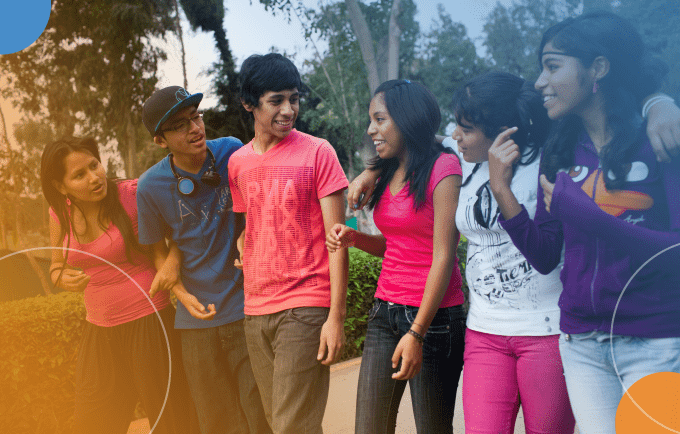On August 12 the International Youth Day is commemorated and it is a good time, given the context in which the world is still immersed, to share the story of the "Youths Make a Difference" campaign, carried out in Peru during the first months of the pandemic.
Adolescents and young people (people between 12 and 29 years old) together make up one third of the Peruvian population. This is a representative group who faces serious challenges during the health emergency due to COVID-19, but who also shows great leadership in generating transformations and contributing to society.
"Youths make a difference" is a campaign carried out by the United Nations Population Fund (UNFPA) in Peru together with the Ministry of Education (MINEDU) and the National Secretariat for Youth (SENAJU). Its objective is to position the new generations as strategic actors in the task of saving lives during the emergency and contributing to democratic coexistence with equal opportunities for men and women during isolation.
Why precisely are they called to action? "We think they have the power to transform social norms, attitudes and behaviors that contribute to their well-being and that of others," explains Carmen Murguía, Program Analyst in the area of Adolescence and Youth at UNFPA in Peru.
"Young people have been influenced, to a greater extent, by globalization and by positive currents, such as greater respect for gender equality, differences and inclusion," adds José Montalvo, Secretary in charge of SENAJU.
For this reason, they represent an age group that is very aware of inequalities, discrimination, violence and other aspects that, in fact, are revealed in situations of emergency and isolation.
Challenges and expectations
These challenges and others related to mutual care, empathy, continuity of learning, access to sexual and reproductive health services, as well as safe interaction in digital environments are addressed in the campaign through a guidebook, flyers and infographics with key messages and graphic pieces on powerful social networks, platforms with which adolescents and young people are familiar. It is also expected that these tools and content will be disseminated in the "Aprendo en Casa" government strategy.
As part of UNFPA's commitment to interculturality, the campaign's content was translated and disseminated in four native Peruvian languages, two from the Andes: Quechua and Aymara, and two from the Amazon: Ashaninka and Shipibo. Additionally, with the intention of linking the messages of leadership and encouragemen to global youth, the contents were translated into English (flyers and infographics).
"The material developed in the campaign touches areas that are not only impacting the lives of thousands of adolescents and young people during the emergency, but will have implications on their life trajectory to adulthood: interruption in their education, limited access to sexual and reproductive health, risk of unplanned pregnancies and early unions, unemployment, among others," highlights Carmen Murguía.
Despite the complicated picture, there are still hopes. "I trust the resilience, leadership and creativity of adolescents and young people to propose new rules of the game and new social patterns in what will become the new normal after COVID-19," adds Murguía.
Youth have the floor.


